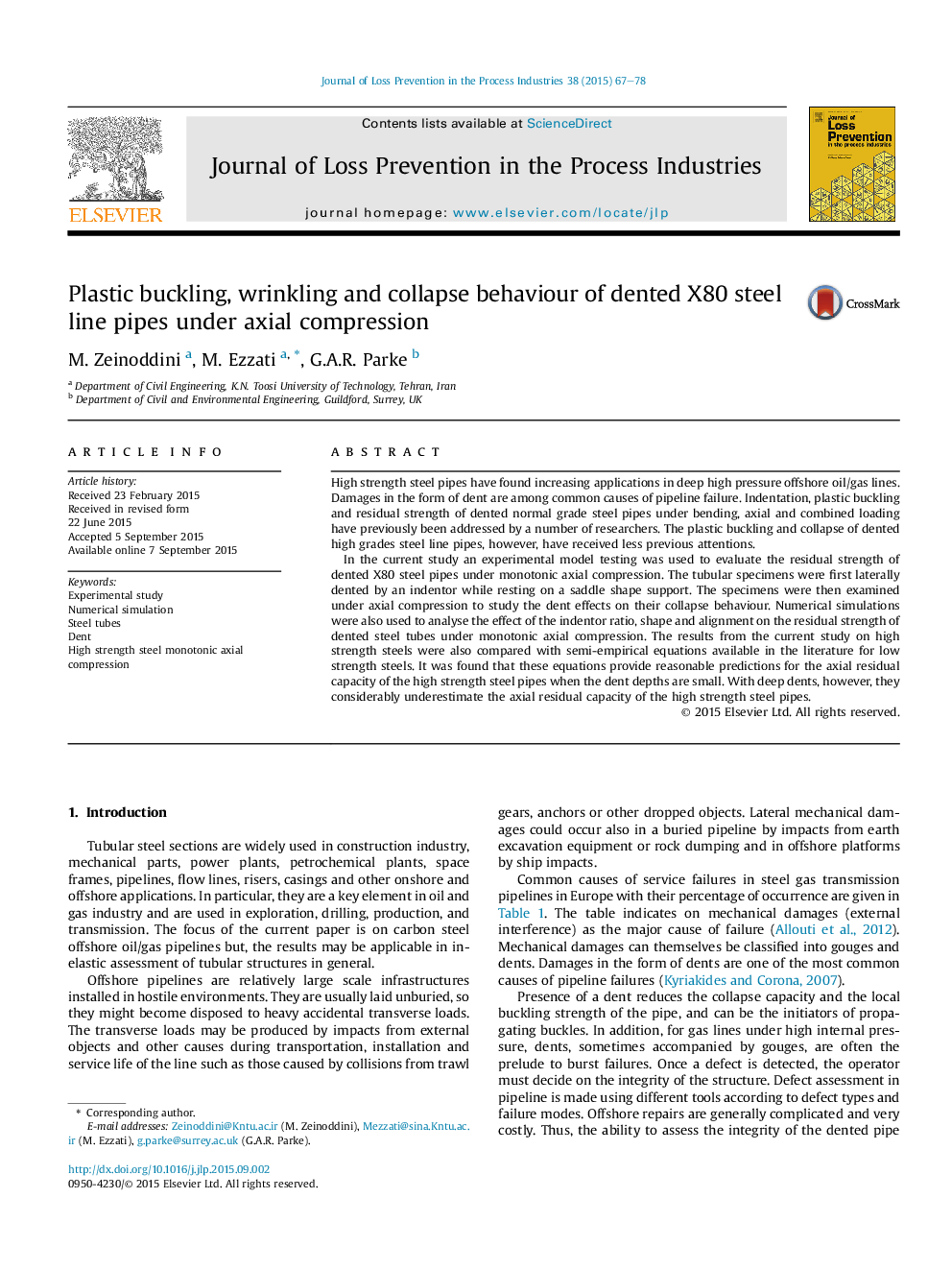| Article ID | Journal | Published Year | Pages | File Type |
|---|---|---|---|---|
| 585960 | Journal of Loss Prevention in the Process Industries | 2015 | 12 Pages |
•The behaviour of dented high strength steel tubulars under monotonic axial compressive loading has been studied.•The residual axial load bearing characteristics (FL, εL, Fchar.) decreased as the dent depth increased.•The results from the current study were also compared with semi-empirical equations.
High strength steel pipes have found increasing applications in deep high pressure offshore oil/gas lines. Damages in the form of dent are among common causes of pipeline failure. Indentation, plastic buckling and residual strength of dented normal grade steel pipes under bending, axial and combined loading have previously been addressed by a number of researchers. The plastic buckling and collapse of dented high grades steel line pipes, however, have received less previous attentions.In the current study an experimental model testing was used to evaluate the residual strength of dented X80 steel pipes under monotonic axial compression. The tubular specimens were first laterally dented by an indentor while resting on a saddle shape support. The specimens were then examined under axial compression to study the dent effects on their collapse behaviour. Numerical simulations were also used to analyse the effect of the indentor ratio, shape and alignment on the residual strength of dented steel tubes under monotonic axial compression. The results from the current study on high strength steels were also compared with semi-empirical equations available in the literature for low strength steels. It was found that these equations provide reasonable predictions for the axial residual capacity of the high strength steel pipes when the dent depths are small. With deep dents, however, they considerably underestimate the axial residual capacity of the high strength steel pipes.
